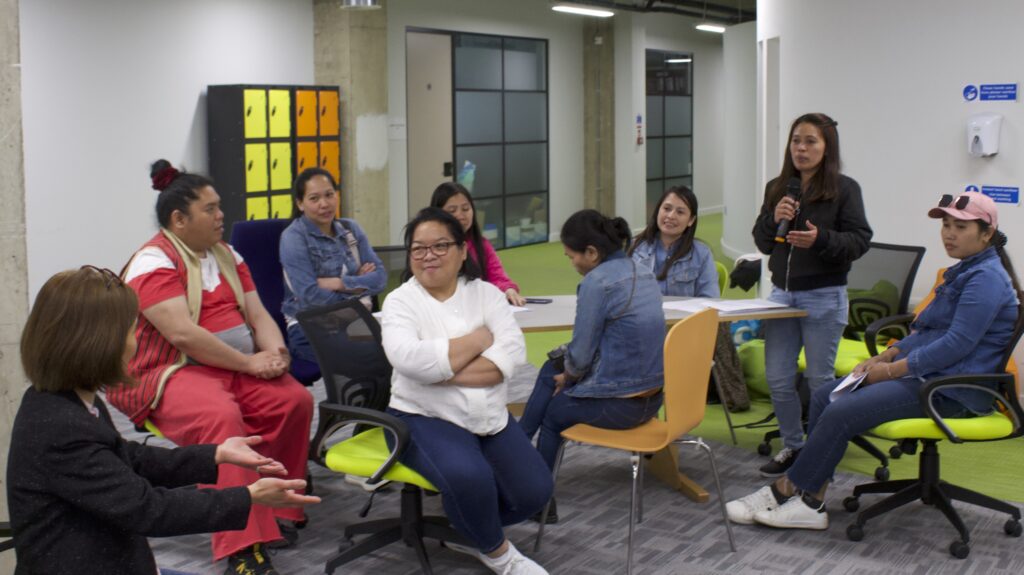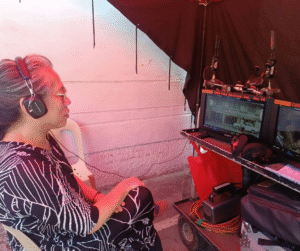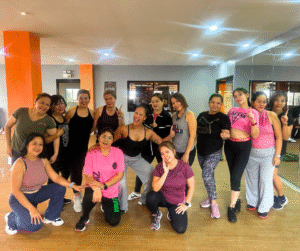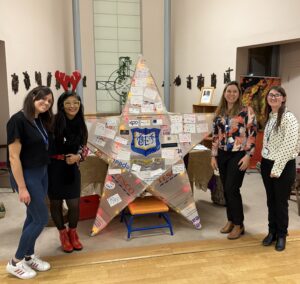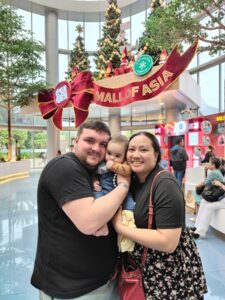Between 20 to 25 Filipino domestic workers completed a three-part advocacy training to strengthen their rights as workers in the UK. The Filipino Domestic Workers Association (FDWA) partnered with Tinig UK to deliver a training programme as part of the “Empowered Domestic Workers” project funded by Porticus, an international philanthropic organisation.
Three workshops were held between January, March and May 2023 to help FDWA develop an advocacy strategy and equip its members with advocacy skills.

Cielo Tilan, FDWA president said, “The recent advocacy training has inspired participants to find the strength and courage to speak up, to face policymakers and to share their experiences as domestic workers in private households.”
The three-part training was facilitated by Liezel Longboan, Tinig UK founder and editor. Ms Longboan said, “I’m delighted to help FDWA reflect on the change they’d like to see and plan how they can make it happen in the coming months.”
The project was also supported by the Kanlungan Filipino Consortium.
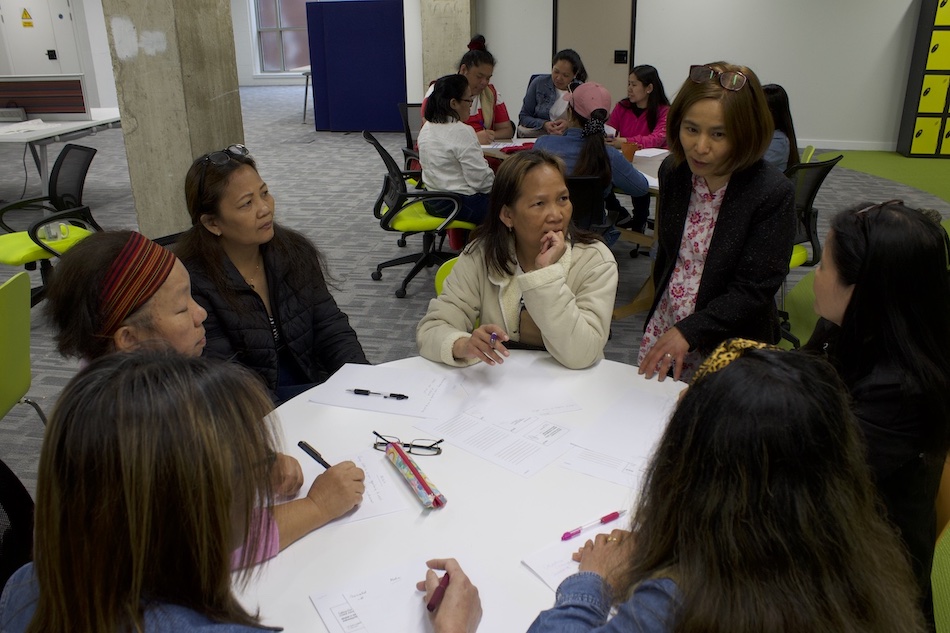
In an informal survey conducted among the participants, 60 percent of them are currently going through the National Referral Mechanism (NRM), a system set up by the Home Office aimed to identify and support victims of modern slavery and human trafficking.
During the first training in January, some FDWA members who are going through the NRM shared their reasons for leaving their families in the Philippines and the abuse they faced at the hands of overseas employers.
Explaining members’ situation, Ms Tilan said that the NRM is supposed to support victims of modern slavery and human trafficking but what they find is that abused domestic workers are the ones who have the burden to show that they are victims, instead of abusive employers being investigated and penalised. “Where is justice there?” she asked.
“Our call is for the government to reinstate the concessions to overseas domestic workers and to allow victims of modern slavery going through the NRM to work,” she added.

On average, the UK issues about 11,500 overseas domestic worker visas to Filipino workers annually. Many of them are brought to Britain by their wealthy Middle Eastern employers for a maximum period of six months. They often work for excessively long hours without days off or rest and face sexual abuse, maltreatment and low pay.
“The NRM does not help in the recovery of survivors of modern slavery because many of them become destitute in the process. As they can’t provide proof of identification with their passports withheld by their employers, they are treated as ‘illegal workers’ even if they have the right to work in the UK,” Ms Tilan added.
Nina Rivera, one of the officers of FDWA, said “The training gave us the chance to mine our wealth of experiences doing domestic work and provided us with the tools to use these experiences to further our advocacy work.”
Another participant, Juliet Rice, said “The training was very informative and interesting. I also enjoyed the activities and open forum.”

